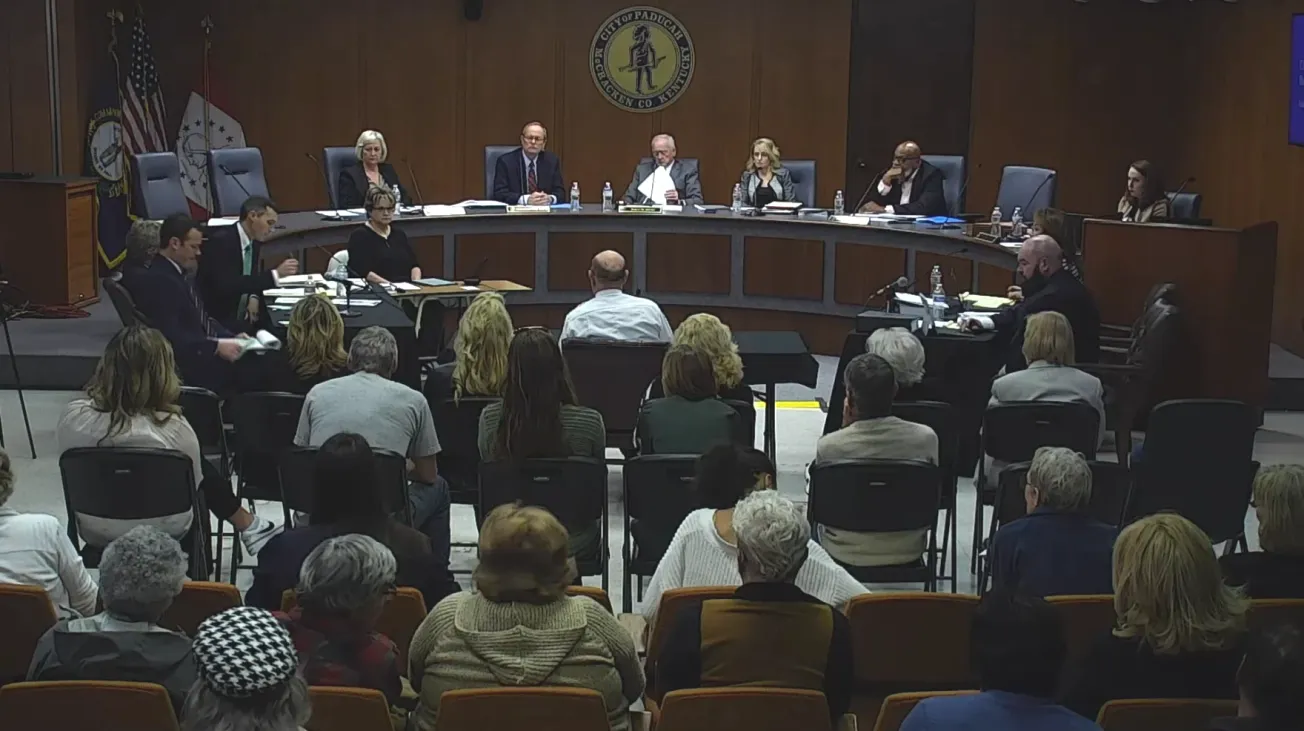Four-term Paducah City Commissioner David Guess wasn’t just disciplined after he was caught sending a racist text message to a city employee.
He got fired, effective immediately.
The balance of the Board of Commissioners, which includes Mayor George Bray, voted 4-0 to oust Guess at a public hearing on Jan. 17. The action was evidently unprecedented for a city commission in deep western Kentucky’s main town.
“The commissioners stuck to their guns and showed they weren’t going to tolerate racism in any form,” said J.W. Cleary, 30-year president of the Paducah-McCracken County NAACP branch. “I think if governments in other cities did what Paducah did, the whole United States would be a better country.”
Cleary, 67, grew up in Paducah when Kentucky was still part of the Jim Crow South. Race discrimination was the law and the social order. He remembers a Paducah movie theater where Blacks had to sit in the balcony “and a dentist office where we had to go in the side door.”
For decades, most neighborhoods were segregated in the old port town where the Tennessee and Ohio rivers converge. So were most churches-though historically Black churches never barred whites.
Blacks couldn’t go to school with whites, eat in white restaurants, stay in white hotels, use white toilets, drink from white fountains or go to white parks. They faced rampant hiring discrimination.
Guess was charged with official misconduct. At the public hearing, Cleary testified that just as he never expected to “see an African American president of the United States,” he never believed he’d see the city and county government make “diversity and equity and inclusion as one of their top priorities. ... It was a dream come true. I didn’t think we would ever see that day in Paducah, Ky.”
Cleary had spoken in favor of Guess’s ouster at a December 15 commission meeting where the mayor and the other commissioners gave Guess an official letter asking him to resign. “God knows I love David Guess as a person,” WPSD TV reporter Jasmine Youngblood quoted Cleary, who nonetheless added that “for the city’s sake,” the commission had “to take action to remove him” if he wouldn’t resign.
Guess refused to step down.
At the hearing, Cleary reiterated that Guess should be removed because “it has to start at the top,” adding that talking about diversity, equity, and inclusion is one thing, but “fulfilling it is a different story. ... We’ve seen it so many times in life whereas people would talk a good talk but they won’t follow through.”
Guess can appeal the commission’s action to the McCracken circuit court. Meanwhile, it is up to the commission to choose Guess’s replacement.
After the hearing, Bray read a statement on the commission’s behalf:
“Over the last 60 days, this Commission has had to wrestle with one of the toughest issues that City leaders will ever face. The decision to remove a commissioner, while very challenging and defining for the entire community, we believe sets a standard for behavior as leaders of our city going forward. While we have much work left to do, our community has made tremendous gains in the area of diversity, equity, and minority inclusion. This is one of the areas that defines the city that we all want to live in, where we want our children to live, and where others will choose to live as they make relocation decisions in the future. Simply stated, as a community we have made many gains and are simply not willing to take a step backwards.”
--30--








